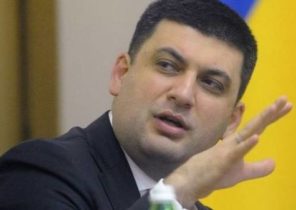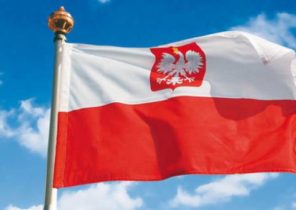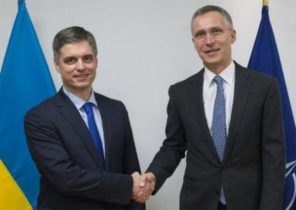
The situation was desperate. “Operational breakthrough is so profound that now I don’t know what to do,” wrote Lieutenant appointed doctor Helmut (Helmuth Stieff) January 10, 1942 from the Eastern front to his wife. “How everything will happen, I do not know”. The officer, who later became one of the leaders of the resistance, almost gave up: “I’m tired of this horror without end”. The whole offensive power is exhausted, said one General. It seemed that the fall of the Eastern army, which for so long had won, remained a matter of days. But why this did not happen, on this widely discussed question still no answer.
When the Rate is under the leadership of Stalin on 5 December 1941, took the decision to start a major offensive, the German offensive on Moscow failed. Although army group Center during “Operation Typhoon” since the beginning of October in the battles at Vyazma and Bryansk was captured more than 660 thousand soldiers and some of the stations were a few kilometers from the inner defensive ring of Moscow, but in the end of November, increasingly there were reports of “the full depletion of troops and replacement”. Chief of staff Franz Halder (Franz Halder) wrote: “the Army here has come to an end.” According to him, the shelves, usually numbering up to 3,000 soldiers under the command of Colonel consisted of only 400 soldiers under the leadership of Lieutenant.
While 78 divisions “Operation Typhoon” on average had only half of its composition and only a small amount of usable material, the disposal of 104 Soviet divisions that carried out the attack, there were more than one million soldiers with tanks and 780 5700 guns. In addition, the Siberian connection, unlike German, was better prepared for the winter, which was a test: the temperature is below 30 degrees, lack of people, animals and vehicles.
Units of the Wehrmacht that was defeated the first attack of the red army, could not do anything else but to seek refuge in retreat. However, they are often ahead, surrounded and exterminated not only for Moscow, but also in Ukraine, in the Crimea and Leningrad. Because Stalin gave the order to advance across the front lines. The order, which then received the German troops, says something about their composition and the state of mind of the Supreme commander, Hitler demanded “fanatical involvement of the forces of each commander to direct troops to fanatical resistance in their positions”. Thus, the dictator tried to push his soldiers to hold the front that were literally falling apart.
The famous “stop order” of Hitler at first did not give a significant effect. About the defensive lines could not be speech on the background pressure of the Soviet troops. But after the dictator Dec 19, retired formal commander of the land army, Walter von Brujita (Walther von Brauchitsch) and he took command, October 26, was ordered to “fight for every inch of ground to the last.” The generals, who expressed the protest had been dismissed, taken in the environment units were ordered to hold their position until the end.
When one commander cried, “save me, at least, the army, without technology,” Hitler replied, sitting in their warm headquarters in Rastenburg: “How do You imagine the further retreat without heavy weapons?” And argued the downfall of Napoleon in 1812 in the same area, which the retreat has lost not only hundreds of thousands of soldiers, but also weapons.
However, blind terror of Hitler led to some stabilization. “Without any doubt, writes historian Christian Hartmann (Christian Hartmann) in their study “the Wehrmacht in Eastern war” (2010) — stubbornness of Hitler prevented a first defeat of the Eastern army on the expanse of the theater of hostilities, where it probably soon would have collapsed”. And in fact, the front was stabilized until mid-January to the extent that was possible, some ordered the withdrawal of troops, while the Soviet offensive slowly ground to a halt.
The soldiers had to withstand the inhuman tests
The consequences of this strategy was to take ordinary soldiers. They had to withstand the inhuman tests. The fact that many of them survived was a consequence of the experience of improvisation, courage and hardness, the friendly spirit and fearlessness and, in the end, the pure will to live,” writes Hartmann. With the belief that the capture of Moscow will be the end of the war, the exhausted troops fall again rallied all his strength. The defeat shocked not only faith in the military leadership, but also gave out social Darwinist energy, which is reflected in the crimes: the prisoners were burdensome zastrelili, civil, robbed and expelled, their foundations of life when waste was destroyed.
It’s a double enraged at the attack and the retreat left a devastated land, where the Red army was advancing hundreds of kilometers. The horrors that they experienced, motivated soldiers to follow the words of Stalin, “to destroy the Germans to the last man” and support their actions. “Our sacred duty is to carry out brutal revenge… and destroy every last of the German occupiers”, — stated in the army orders. Destroy them as “killing mad dogs”: the spiral of the war of annihilation unleashed by Hitler, more …
When the front, in the end, in February of 1942 froze into trench warfare, which was associated with winter, the loss of the Wehrmacht numbered about one million dead, wounded, sick and missing. At the disposal of the Wehrmacht was recovered including 500 thousand soldiers. The loss of vehicles and other equipment were irreplaceable. For the implementation of the planned attack on the Caucasus, the Wehrmacht had to give it its most important resource — mobility. In large parts of the Eastern front troops were trench warfare of the First world war, while motorized connection replenished for new operations.
Connected with this was the collapse and another source of fighting force, which the Wehrmacht had the advantage, despite its numerical gap. Direct intervention of Hitler in prompt actions undermined the so-called principle of granting independence to the commander of the task on the front. Under this was understood specific Prussian-German principle when the commander to complete the task were given at his discretion all the necessary tools. Fell not only many experienced officers and non-commissioned officers. Their followers, as well as new commanders are much stronger adhered to the principle of supply reports that are now required Hitler to each place to establish his will. Thus, the Wehrmacht lost its flexibility, which was based on the initiative and involvement.
The red army (and its predecessors under the Tsar) never had this freedom of action. She did everything that was prescribed in the headquarters of Stalin, which were controlled by political Commissars down to the lower levels. So, only generals Georgy Zhukov dared to object to the dictator, when he after the victory in Moscow gave the order to advance on all fronts.
Up to the highest ranks of the red army officers due to the purges before and during the war, realized that their own initiative and thinking not in the template will most likely result in the execution of their own than to success on the battlefield. As schematically carried out the attack, often in front along the road, not thinking that it was necessary to circumvent the enemy line of resistance and, if possible, be deep in the flanks and rear of the enemy, writes military historian Joachim Hoffmann (Joachim Hoffmann) in his work “the German Reich and the Second world war.” Instead of forming the main goals, the commanders tried to simultaneously attack multiple targets, giving the enemy the opportunity to retaliate.
While Stalin after the initial success in December was already dreaming of how to destroy the Wehrmacht before the spring thaw of 1942, the strategic reserves literally melted. So, Stalin and his General staff bear the primary responsibility for the fact that Soviet winter offensive ended although significant, but not critical success.
The intervention of both dictators, in the end, turned out to be even counterproductive for military action. The red Army was a sense of superiority, which, however, did not display the actual balance of forces and resulted in heavy defeats of the summer of 1942. The moral shock of German soldiers because of the failure of the blitzkrieg softened the strategic goals of the person who was responsible for the suicide March. But Hitler, above all, believed that he knows better than his generals. The consequences of this were to occur, at the latest, in Stalingrad.






